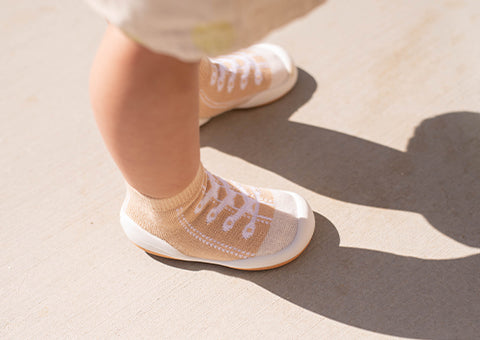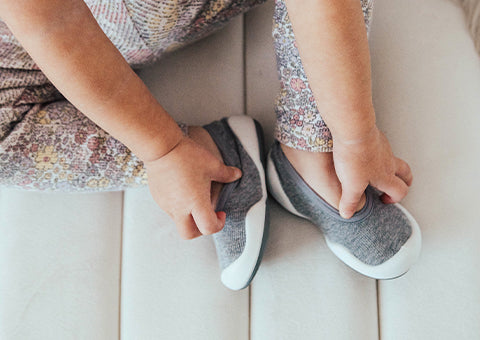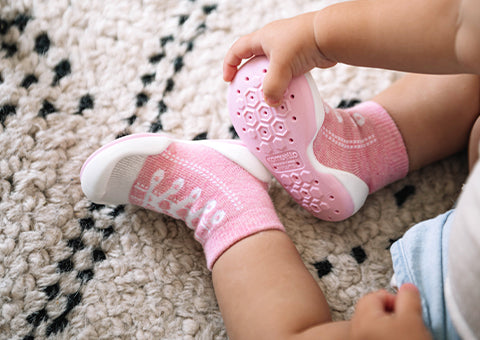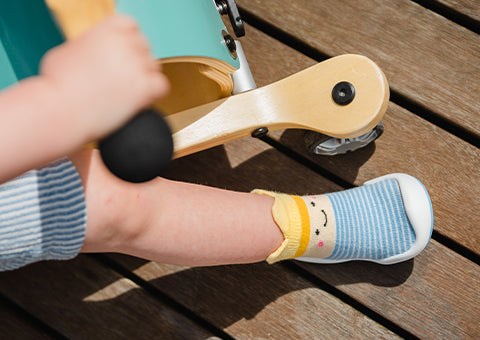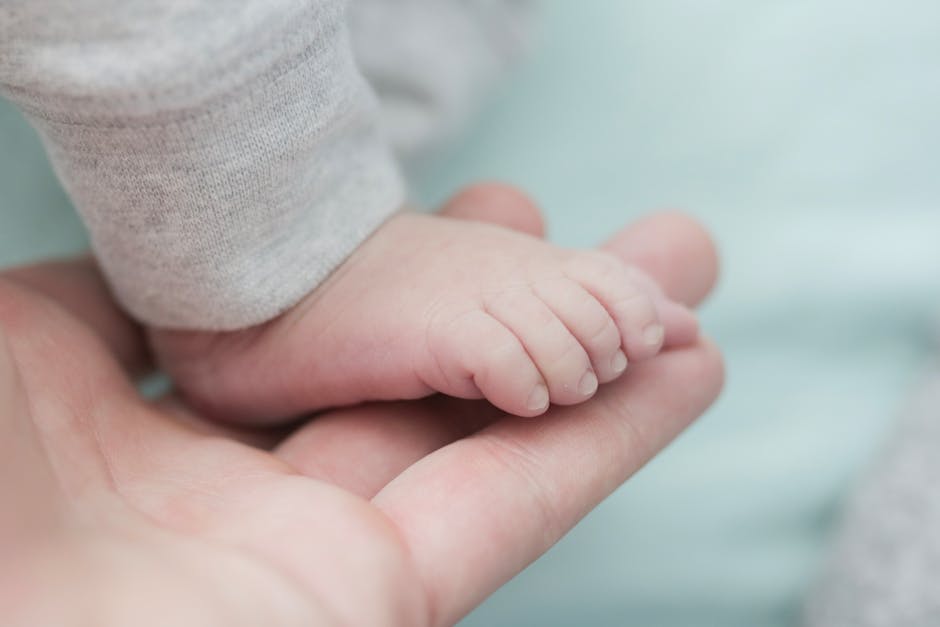Importance of baby shoes for natural foot development
Baby shoes play a vital role in supporting a baby’s natural foot development. Here are key points to consider:
- Soft sole baby shoes provide flexibility and allow a baby’s feet to move and grow naturally.
- Properly fitting shoes help in muscle development and balance.
- Choosing the right shoes can prevent foot issues later in life.
-
Baby shoes with good grip can help babies learn to walk confidently.
Understanding the concept of soft sole baby shoes
Soft sole baby shoes are designed to mimic barefoot walking, allowing babies’ feet to develop naturally. These shoes are made with flexible materials that provide protection while allowing proper movement and balance. It is important for babies to have the freedom to move their toes and feel the ground, as this helps strengthen their muscles and improves balance. Soft sole shoes are lightweight and offer a close-to-the-ground feel, promoting healthy foot development in babies.
Benefits of soft sole shoes over traditional footwear
Soft sole baby shoes offer benefits over traditional footwear that support natural foot development. Here are some reasons why they are preferred:
- Flexibility: Soft sole shoes allow for natural foot movement, helping in muscle and balance development.
- Sensory Stimulation: The thin sole of soft shoes allows babies to feel the ground beneath them, enhancing sensory awareness.
- Grip: The non-slip soles of soft shoes provide traction, aiding in stability as babies learn to walk.
- Comfort: Soft materials used in these shoes prevent constriction and allow the feet to grow and develop naturally.
-
Healthy Foot Development: By mimicking barefoot walking, soft sole shoes promote the natural arch and muscle development of the feet.
How soft sole shoes aid in proper foot movement
Soft sole baby shoes allow your baby’s feet to move naturally and develop properly. These shoes provide flexibility, enabling your baby’s feet to bend and stretch, helping them build strength and balance. Soft sole shoes also promote sensory feedback, allowing your baby to feel the ground beneath them and improve their coordination. By supporting your baby’s natural foot movement, soft sole shoes encourage healthy foot development.
Factors to consider when choosing soft sole baby shoes
When choosing soft sole baby shoes, consider factors like the material of the shoes, the flexibility of the soles, and the size that allows room for growth. Soft leather is often recommended for its breathability and flexibility. Look for shoes with non-slip soles to help prevent slips and falls as your baby learns to walk. Ensure the shoes are lightweight to not hinder natural foot movement. Measure your baby’s feet regularly and choose shoes that provide enough room for toes to wiggle and grow.
Types of soft sole baby shoes
Soft sole baby shoes come in three main types: slip-on, Mary Jane, and sneaker styles. Slip-on shoes are easy to put on and take off, making them convenient for busy parents. Mary Jane shoes feature a strap across the top of the foot, providing extra stability. Sneaker-style shoes resemble miniature adult athletic shoes and are popular for their sporty look. Each type of soft sole baby shoe offers unique benefits for supporting natural foot development in infants and toddlers.
The impact of shoe quality on foot development
High-quality soft sole baby shoes have a positive impact on natural foot development. They allow your baby’s feet to move and grow freely, which is crucial for developing strong and healthy foot muscles. Additionally, soft soles provide a good grip, aiding in balance and stability as your baby learns to walk. Choosing well-constructed, soft sole shoes for your little one can help promote proper foot development and overall comfort.
Expert recommendations for selecting the right shoe size
When choosing soft sole baby shoes, it is important to ensure they fit correctly to support natural foot development. Here are some expert recommendations to help you select the right shoe size:
- Ensure there is enough room for the baby’s toes to wiggle and move comfortably.
- The shoe should be flexible to allow for natural foot movement.
- Check that the shoe is not too tight around the heel or the instep.
- It’s best to measure the baby’s feet regularly as they grow quickly.
- Consider the width of the shoe to prevent any discomfort or restrictions.
Following these recommendations will help in choosing the right shoe size for your baby’s natural foot development.
Tips for caring and maintaining soft sole baby shoes
To keep soft sole baby shoes in good condition, avoid putting them in the washing machine or dryer. Hand-wash them with mild soap and water instead. Ensure they air dry completely before letting your baby wear them again. Regularly check the fit of the shoes as babies’ feet grow quickly. If the shoes become too small or worn out, it’s time to get a new pair.
Conclusion: Promoting healthy foot development from the start
Soft sole baby shoes provide the necessary flexibility for natural foot development in infants. By allowing the feet to move freely, these shoes support muscle strength and balance. Choosing soft sole shoes made from breathable materials can enhance comfort and prevent issues like overheating or skin irritation. Prioritizing the development of healthy feet early on can lead to better posture and overall foot health as the child grows.

